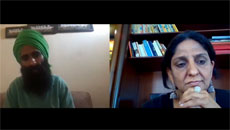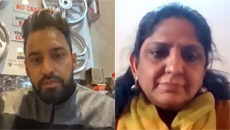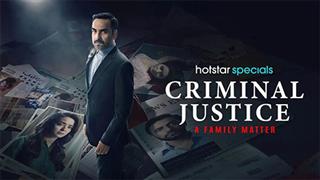It quickly became one of Marathi cinema's moder classaics, spawning a Tamil version and soon a Hindi adaptation too. Kamat's new film Mumbai Meri Jaan tracing trauma after the train blasts on July 11, 2006 is undoubtedly one of the finest socio-political messages delivered through the cinematic medium in recent times. Kamat chats with Subhash K Jha
There's a spate of films including your Mumbai Meri Jaan on different aspects of terrorism. Do you see that as a heatlhy sign?
I see that as a sign of the times. We're going through very troubled times. Cinema is meant to be reflect contemporary reality. All these films on terrorism coming together is just a bizarre not a bazaar coincidence.
My idea behind making Mumbai Meri Jaan is to show how people survive a personal tragedy. I was more interested in the characters than the tragedy of the train blasts.
The footage showing the blasts is palpable?
I recreated the blasts rather than using news footage. It took me 15 days to shoot the blasts scenes. By coincidence all my three films so far have trains as a backdrop.
I don't think I'll make another film with trains at the backdrop for another ten years. That the blasts happened in trains was a grim fact I had to incorporate in my film. I did a lot of technical research about the locations and timings of the blast. Beyond that everything in Mumbai Meri Jaan is fictional.
Yes, the characters are made up. But I'm sure a lot of people went through the same emotions after the blasts. I haven't experienced any of the things shown in my film. But I'm sure they've happened to people. I lived with my characters for two years. They drained me emotionally. I don't know when I'm going to direct again.
Of the characters in film which one do you identify with the most?
The one played by Madhavan. Like him I'm proud to be an Indian. But when a tragedy like a bomb blasts happens it shakes your faith in the nation.
I came very close to the 1993 Mumbai blasts. I passed close by to where one of the blasts occurred. That traumatized me and I've poured my heart out into Madhavan's character. He expresses the fears that I felt 15 years ago when the blasts happened. I feel any act of extremism over a city causes the anthill effect.
A stone hits the anthill, the ants are traumatized. But they immediately get to rebuilding their anthill.
Neeraj Pandey who has directed another film on terrorism A Wednesday says when we talk of the resilience of the Mumbayites after every attack we're only looking for another word for acceptance out of compulsion.
That's partly true. We're truly tolerant. After each attack the people feel helpless. But Mumbaiyites do have the inner strength to bounce back. I really don't have the answers. I've only put across the problem in Mumbai Meri Jaan.
A lot of the credit for the authenticity of my film goes to Yogesh Doshi for his colloquial dialogues. I was not sure whether the episodic format of filmmaking was going to work in this film.
Episodic films haven't worked in Hindi cinema so far?
I was aware of that. It was a new style of narration fo me.A lot of people wanted to know why I was doing five stories in one film. But these five characters had to have their say.
The script chose the actors. Every actor from Paresh Rawal to Soha Ali Khan said yes when they read the script. Writing the script took nine months, casting just took one month. I knew KayKay Menon and Irrfan from the time I worked with them on television ten years ago.
For them too it was the script. And thank God for such dedicated actors in our cinema. Otherwise a film like Mumbai Meri Jaan can never be made. I'm deeply honoured to have worked with such a great bunch of actors. Paresh Rawal is an institution.KayKay has a great eye for detail.
Irrfan 's understanding of a character is incomparable.Soha Ali Khan pushed herself beyond the edge. And Madhavan didn't have to act at all.
Why do you think it didn't get a large audience?
I've no clue. I don't think about the boxoffice when I make a film. I just make what I have to without considering the consequences. It's been a strange but enriching journey for me, from Marathi to Tamil (which I didn't know a word of ) to Hindi. I hope the journey continues to make me a wiser and better director.





















